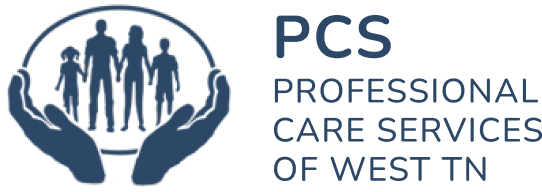Individual therapy:
- What it is: Talk therapy and/or behavior therapy to address issues such as depression, anxiety, life stress, grief, marital strain, and more.
- Who it is for: Adults and children with TennCare, BHSN, or private insurance. Can also self-pay.
Family therapy:
- What it is: Talk therapy and/or behavior therapy to address children and their family’s behavioral and communication issues.
- Who it is for: Adults and children with TennCare, BHSN, or private insurance. Can also self-pay.
Alcohol and Drug Evaluations:
- What it is: Substance Abuse Subtle Screening Inventory (SASSI) done by a therapist.
- Who it is for: Adults or adolescents who must pay (or have an agency pay) $100 for the assessment (this service is not covered by insurance).
Medication Assisted Treatment (MAT):
- What it is: Substance Abuse treatment using Buprenorphine to assist individuals in discontinuing their use of opiates which may include fentanyl, heroin, or prescription opiates.
- Who it is for: Adults who are dependent on opioids.
Medication Management:
- What it is: Psychiatric evaluation and ongoing appointments as indicated with a Doctor or Nurse Practitioner to receive prescriptions for symptom relief from psychosis, depression, anxiety, etc. *PCS does not prescribe Benzodiazepines.
- Who it is for: Adults and children with TennCare, BHSN, or private insurance.
TN Health Link (THL- formerly Case Management):
- What it is: Supportive services to monitor and coordinate mental and physical health needs and compliance; goal is to empower clients to live successfully in community with natural supports.
- Who it is for: Adults and children with TennCare. Can receive care coordination with BHSN.
Intensive Continuous Treatment Team (CTT):
- What it is: Intensive case management service offered weekly (or more as needed) in the community. Focus is on the individual.
- Who it is for: High need adults and children with TennCare.
Comprehensive Child & Family Therapy (CCFT):
- What it is: Intensive case management service offered three times/week (or more as needed) in the home. Focus is on the family.
- Who it is for: Children with TennCare who are at risk of placement in hospitals, residential treatment centers or other out-of-home placements. Also appropriate for youth returning from out-of-home placement.
24-Hour Crisis Services:
- What it is: Crisis screening services to address suicidal ideations/attempts, homicidal ideations/attempts, or severe psychosis to the point of endangerment.
- Who it is for: Adults only in Tipton, Lauderdale and Fayette Counties.
- 24 hours a day, 7 days a week. (1-800-353-9918).
Supervised Residential Group Home:
- What it is: Living facility for those with a mental health disorder who are transitioning to independent living.
- Who it is for: Adults with TennCare who receive some type of income.
Independent Living Facility:
- What it is: Independent houses for those who have a mental health diagnosis and otherwise would be homeless.
- Who it is for: Adults with TennCare who receive some type of income.
Peer Support:
- What it is: Recovery-based services to supplement existing mental health services, led by mental health consumers in Fayette and Lauderdale Counties.
- Who it is for: Adults who have a mental health diagnosis.
Illness Management and Recovery Groups (IMR):
- What it is: Weekly groups for those with a mental health diagnosis led by a Case Manager, Peer Support Specialist, or Therapist. Topics include recovery strategies, reducing relapse, coping with stress, facts about mental illness, etc.
- Who it is for: Adults who have a mental health diagnosis and have TennCare or BHSN.
System of Care Across Tennessee (SOCAT):
- What it is: High-fidelity wraparound designed to work with formal and informal supports to keep children at home.
- Who it is for: High-risk children 0-21 years old and their families.
Criminal Justice Liaison (CJL):
- What it is: State-funded community project to decriminalize mental illness, co-occurring disorders and substance abuse disorders and reduce recidivism. Fayette, Lauderdale, Tipton and Dyer Counties.
- Who it is for: Adults who are incarcerated or at risk of incarceration and have a mental illness, substance abuse disorder, or both.
School-Based Behavioral Health Liaison (SBBHL):
- What it is: Masters-level clinician assisting school(s) in implementing trauma-informed practices.
- Who it is for: Identified schools. The SBBHL provides trainings, support and consultation for teachers and administration; and therapy services for students with social emotional disturbance or who are at risk of developing mental health or substance use disorders.


